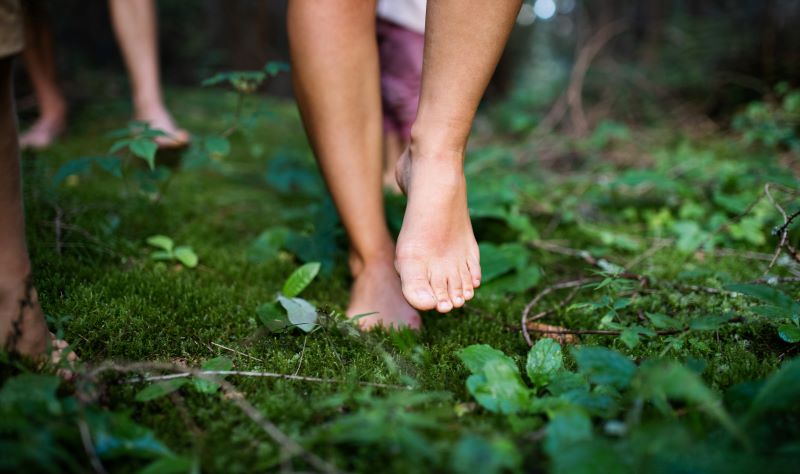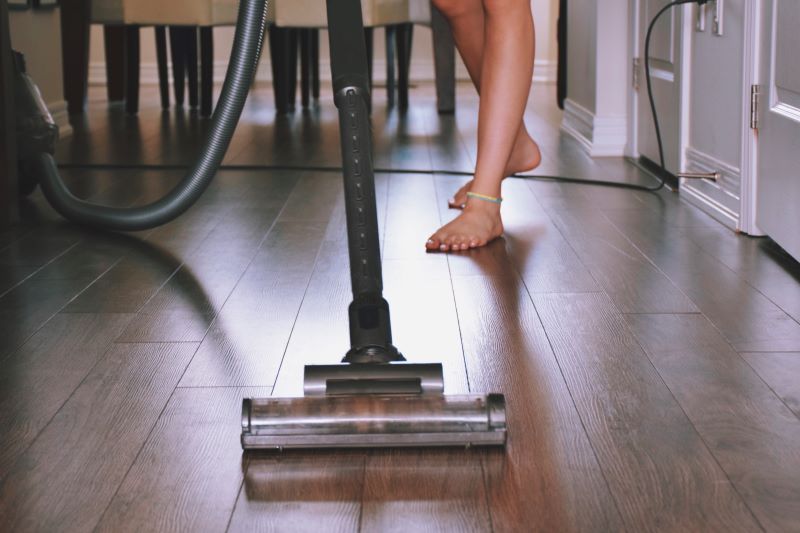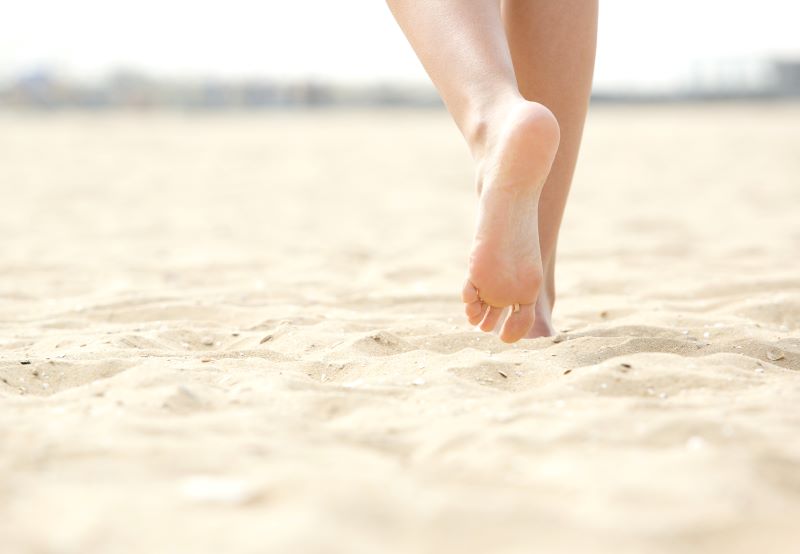Should I Be Walking Barefoot?
Many people nowadays are deciding to go barefoot more often in their day-to-day lives. Proponents of “barefooting” claim that going barefoot more often is better for the health of your feet than keeping them protected by shoes when you’re outside.
Most people tend to wear shoes on their feet when they’re not in the comfort of their own homes. Of course, there are certain situations where it might be appropriate to go barefoot. For instance, the beach and the backyard are perfectly normal places to shed your socks and shoes.
While there’s an argument for and against going barefoot more often, research actually shows that the practice can have a positive impact on a person. Read along with this article to learn more about the risks and rewards of “barefooting” as well as how you can make sure your feet get and stay healthy.
 Is Walking Barefoot Good For You?
Is Walking Barefoot Good For You?
When children are first learning to walk, doctors tell parents to allow this process to happen without shoes. This is because wearing shoes can affect the muscles and bones in a child’s feet and determine how they are used. While walking barefoot, children are also able to have a better perception of where their bodies are in space.
People who advocate that humans spend more time barefoot do so because of the perceived benefits of using our feet out in the real world. The biggest argument for going barefoot more often is that walking barefoot actually restores our natural gait or walking pattern.
Shoes accommodate our need for comfort while walking, but they also stop you from using important muscle groups in your feet. These groups of muscles can actually help you strengthen parts of your body.
Benefits of Walking Barefoot
We use our feet to move from one place to another. This makes our feet easily the most important two parts of the body. The reason we are able to survive each day is through our ability to move around, to find food, and to create shelter for ourselves. Our feet carry us throughout the day.
If we are always wearing shoes, our feet are locked into a specific position for most of the day. This renders certain muscle groups less strong than others. If you walk around barefoot, you get a full range of motion in your feet that shoes don’t typically allow. This gets different parts of your feet moving and thus creates stronger and overall more healthy feet. This is also why professional runners often do part of their training barefoot.
It’s not just about the physical strength of your feet either. Your feet actually have sensory receptors all over them that help you adjust to your specific environment. These receptors can help with your coordination, balance, foot control, and range of motion.
 Risks of Walking Barefoot
Risks of Walking Barefoot
While walking around barefoot can have many potential benefits and positive effects on your overall health, you have to remember that humans invented shoes for a reason. Sure, there are plenty of benefits to walking around barefoot some of the time, but that doesn’t mean that you should just throw away all of your shoes and go all natural all the time.
The most obvious reason for wearing shoes is to protect our feet from environments in which we might encounter hazards. For instance, you wouldn’t necessarily want to be walking around a construction site barefoot, would you? This is because there is likely to be a lot of hazardous debris at a construction site, including things like nails, glass, scrap metal, and more.
Our environments can sometimes be unpredictable, which is why we tend to wear shoes when we go outside of our homes. Even a place as innocuous as our backyard can be potentially risky. Our feet are fragile, so one wrong step could actually do quite a bit of damage. And because we use our feet to do nearly everything, injury can immobilize us.
Is it Bad to Walk Barefoot?
It’s not bad to walk completely barefoot, but just like anything else, it’s important to practice going barefoot in moderation. There are always going to be potential risks to moving around barefoot in a place where you can’t control what might be on the ground, so it’s important to use your common sense in these scenarios.
The benefits of walking barefoot include:
- Improved balance
- Improved sense of body awareness
- Better foot mechanics (leads to better hip, leg, and core mechanics)
- Strengthens and improves stability in muscles and ligaments
- Relief from ill-fitting shoes
- Better control of foot position on the ground
The risks of walking barefoot include:
- Increased risk for injury
- Increased risk for exposure to bacteria
- Increased risk for infection
If you’re going to walk around barefoot often, you’ll want to be careful in how you approach doing it. Start slow and don’t take on terrain that’s too rough for the current physical state of your feet. If you begin to feel pain or discomfort, it might be time to take a rest or put your shoes back on. You’ll also want to be diligent about checking your feet for signs of injury afterward.
You can also embrace being barefoot by getting into an activity that requires you to forgo shoes, like yoga. Simply walking around your house barefoot can improve the muscle groups in your feet without risking the injury that could occur in a less safe environment.
 For More Information About Foot Health
For More Information About Foot Health
If you have any questions or concerns about your own personal foot health and you live in Illinois, don’t hesitate to reach out to us at Foot & Ankle Specialists of Illinois. We serve Carpentersville, Algonquin, Huntley, and the surrounding areas in Illinois.
Whether you need an x-ray, an MRI, or a diagnostic ultrasound, we’ve got you covered. Treatment will vary depending on your own individual needs but you can count on our specialists to handle your case with the utmost care and compassion. To book an appointment with us, visit our website.

